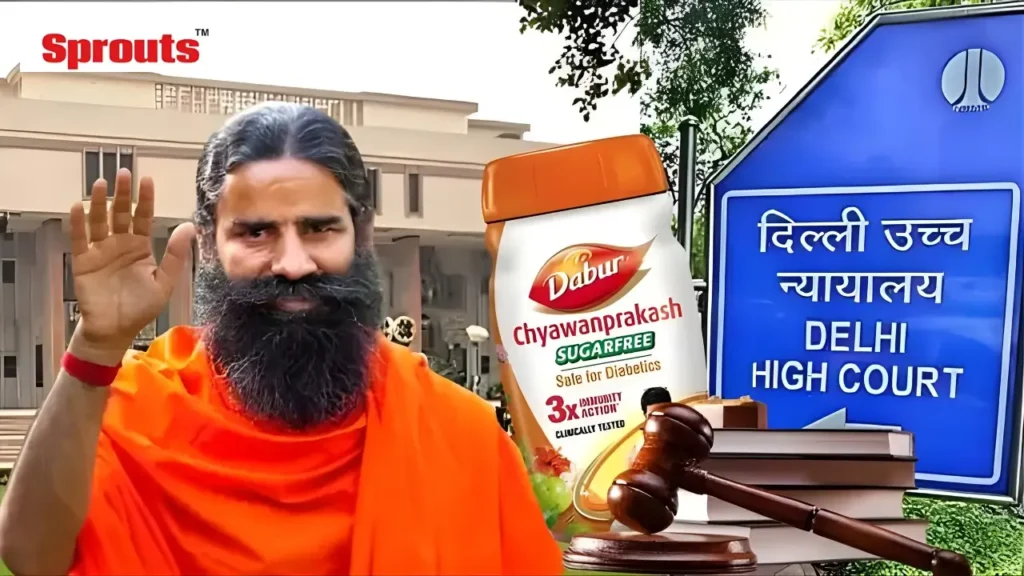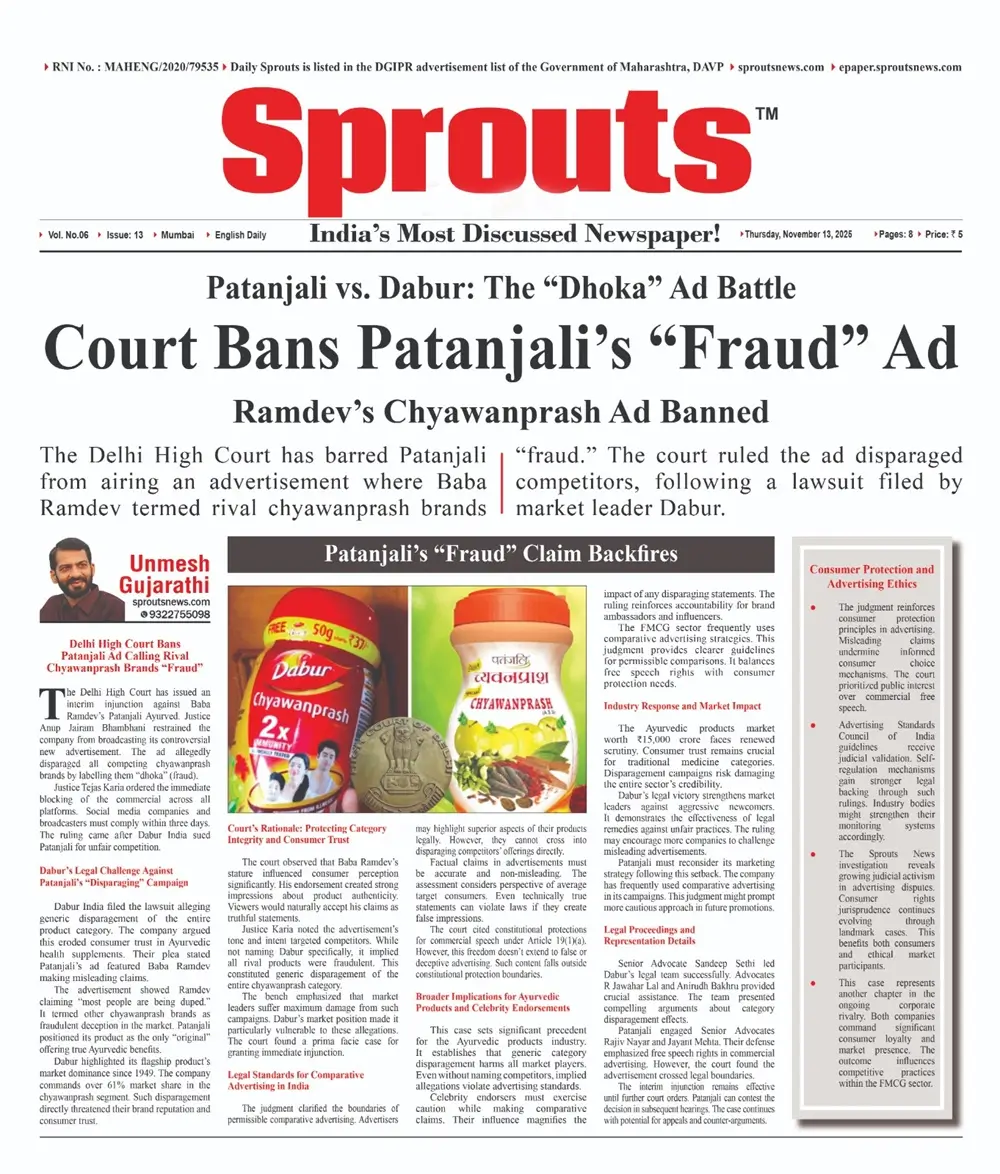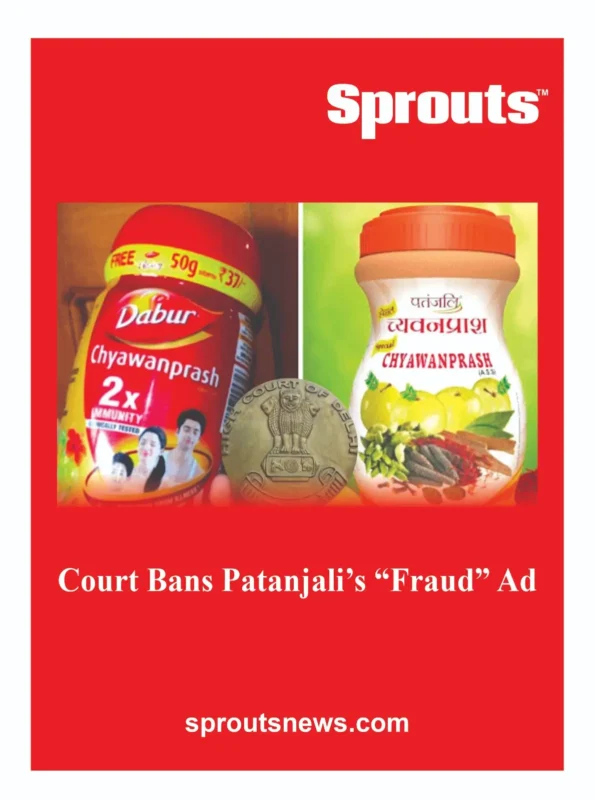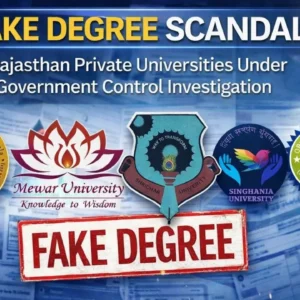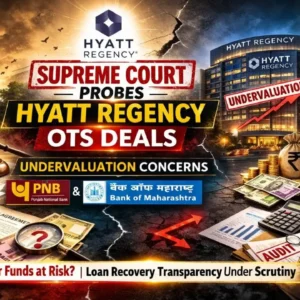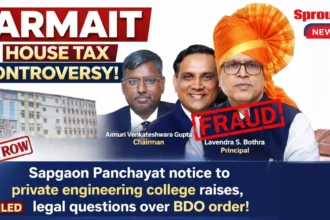Delhi High Court Bans Patanjali Ad That Called Rival Chyawanprash “Fraud”
• Patanjali vs. Dabur: Court Rules Against “Disparaging” Chyawanprash Ad
• The “Dhoka” Advertisement: What the Patanjali Ad Claimed
• Dabur’s Lawsuit: Alleging Disparagement and Unfair Competition
The Delhi High Court has issued an injunction against Patanjali Ayurved, barring its chyawanprash advertisement that labelled rival brands as “fraud.” The order follows Dabur India’s lawsuit alleging disparagement and unfair competition. Justice Anup Jairam Bhambhani directed broadcasters and digital platforms to block the ad within three days. Dabur argued that Patanjali’s “Dhoka” campaign misled consumers and undermined trust in Ayurvedic health supplements, directly impacting the market leader’s 61% chyawanprash segment share.
- Delhi High Court Bans Patanjali Ad That Called Rival Chyawanprash “Fraud”
- • Patanjali vs. Dabur: Court Rules Against “Disparaging” Chyawanprash Ad
- • The “Dhoka” Advertisement: What the Patanjali Ad Claimed
- • Dabur’s Lawsuit: Alleging Disparagement and Unfair Competition
- Delhi High Court Bans Patanjali Ad Calling Rival Chyawanprash Brands “Fraud”
- Dabur’s Legal Challenge Against Patanjali’s “Disparaging” Campaign
- Court’s Rationale: Protecting Category Integrity and Consumer Trust
- Legal Standards for Comparative Advertising in India
- Broader Implications for Ayurvedic Products and Celebrity Endorsements
- Industry Response and Market Impact
- Legal Proceedings and Representation Details
- Consumer Protection and Advertising Ethics
Click Here To Download the News Attachment
Delhi High Court Bans Patanjali Ad Calling Rival Chyawanprash Brands “Fraud”
The Delhi High Court has issued an interim injunction against Baba Ramdev’s Patanjali Ayurved. Justice Anup Jairam Bhambhani restrained the company from broadcasting its controversial new advertisement. The ad allegedly disparaged all competing chyawanprash brands by labelling them “dhoka” (fraud).
Justice Tejas Karia ordered the immediate blocking of the commercial across all platforms. Social media companies and broadcasters must comply within three days. The ruling came after Dabur India sued Patanjali for unfair competition.
To read the High Court Order – Click Here
Dabur’s Legal Challenge Against Patanjali’s “Disparaging” Campaign
Dabur India filed the lawsuit alleging generic disparagement of the entire product category. The company argued this eroded consumer trust in Ayurvedic health supplements. Their plea stated Patanjali’s ad featured Baba Ramdev making misleading claims.
The advertisement showed Ramdev claiming “most people are being duped.” It termed other chyawanprash brands as fraudulent deception in the market. Patanjali positioned its product as the only “original” offering true Ayurvedic benefits.
Dabur highlighted its flagship product’s market dominance since 1949. The company commands over 61% market share in the chyawanprash segment. Such disparagement directly threatened their brand reputation and consumer trust.
Court’s Rationale: Protecting Category Integrity and Consumer Trust
The court observed that Baba Ramdev’s stature influenced consumer perception significantly. His endorsement created strong impressions about product authenticity. Viewers would naturally accept his claims as truthful statements.
Justice Karia noted the advertisement’s tone and intent targeted competitors. While not naming Dabur specifically, it implied all rival products were fraudulent. This constituted generic disparagement of the entire chyawanprash category.
The bench emphasized that market leaders suffer maximum damage from such campaigns. Dabur’s market position made it particularly vulnerable to these allegations. The court found a prima facie case for granting immediate injunction.
Legal Standards for Comparative Advertising in India
The judgment clarified the boundaries of permissible comparative advertising. Advertisers may highlight superior aspects of their products legally. However, they cannot cross into disparaging competitors’ offerings directly.
Factual claims in advertisements must be accurate and non-misleading. The assessment considers perspective of average target consumers. Even technically true statements can violate laws if they create false impressions.
The court cited constitutional protections for commercial speech under Article 19(1)(a). However, this freedom doesn’t extend to false or deceptive advertising. Such content falls outside constitutional protection boundaries.
Also Read: ₹7,000 Crore Thane Land Scam: Regency Group Accused.
Broader Implications for Ayurvedic Products and Celebrity Endorsements
This case sets significant precedent for the Ayurvedic products industry. It establishes that generic category disparagement harms all market players. Even without naming competitors, implied allegations violate advertising standards.
Celebrity endorsers must exercise caution while making comparative claims. Their influence magnifies the impact of any disparaging statements. The ruling reinforces accountability for brand ambassadors and influencers.
The FMCG sector frequently uses comparative advertising strategies. This judgment provides clearer guidelines for permissible comparisons. It balances free speech rights with consumer protection needs.
Industry Response and Market Impact
The Ayurvedic products market worth ₹15,000 crore faces renewed scrutiny. Consumer trust remains crucial for traditional medicine categories. Disparagement campaigns risk damaging the entire sector’s credibility.
Dabur’s legal victory strengthens market leaders against aggressive newcomers. It demonstrates the effectiveness of legal remedies against unfair practices. The ruling may encourage more companies to challenge misleading advertisements.
Patanjali must reconsider its marketing strategy following this setback. The company has frequently used comparative advertising in its campaigns. This judgment might prompt more cautious approach in future promotions.
Legal Proceedings and Representation Details
Senior Advocate Sandeep Sethi led Dabur’s legal team successfully. Advocates R Jawahar Lal and Anirudh Bakhru provided crucial assistance. The team presented compelling arguments about category disparagement effects.
Patanjali engaged Senior Advocates Rajiv Nayar and Jayant Mehta. Their defense emphasized free speech rights in commercial advertising. However, the court found the advertisement crossed legal boundaries.
The interim injunction remains effective until further court orders. Patanjali can contest the decision in subsequent hearings. The case continues with potential for appeals and counter-arguments.
Consumer Protection and Advertising Ethics
The judgment reinforces consumer protection principles in advertising. Misleading claims undermine informed consumer choice mechanisms. The court prioritized public interest over commercial free speech.
Advertising Standards Council of India guidelines receive judicial validation. Self-regulation mechanisms gain stronger legal backing through such rulings. Industry bodies might strengthen their monitoring systems accordingly.
The Sprouts News investigation reveals growing judicial activism in advertising disputes. Consumer rights jurisprudence continues evolving through landmark cases. This benefits both consumers and ethical market participants.
This case represents another chapter in the ongoing corporate rivalry. Both companies command significant consumer loyalty and market presence. The outcome influences competitive practices within the FMCG sector.


